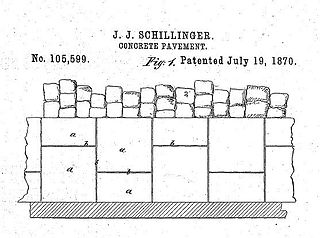Sovereign immunity, or crown immunity, is a legal doctrine whereby a sovereign or state cannot commit a legal wrong and is immune from civil suit or criminal prosecution, strictly speaking in modern texts in its own courts. State immunity is a similar, stronger doctrine, that applies to foreign courts.

The Fair Credit Reporting Act (FCRA), 15 U.S.C. § 1681 et seq., is federal legislation enacted to promote the accuracy, fairness, and privacy of consumer information contained in the files of consumer reporting agencies. It was intended to shield consumers from the willful and/or negligent inclusion of erroneous data in their credit reports. To that end, the FCRA regulates the collection, dissemination, and use of consumer information, including consumer credit information. Together with the Fair Debt Collection Practices Act (FDCPA), the FCRA forms the foundation of consumer rights law in the United States. It was originally passed in 1970, and is enforced by the U.S. Federal Trade Commission, the Consumer Financial Protection Bureau, and private litigants.

The Foreign Sovereign Immunities Act of 1976 (FSIA) is a United States law, codified at Title 28, §§ 1330, 1332, 1391(f), 1441(d), and 1602–1611 of the United States Code, that established criteria as to whether a foreign sovereign state is immune from the jurisdiction of the United States' federal or state courts. The Act also establishes specific procedures for service of process, attachment of property and execution of judgment in proceedings against a foreign state. The FSIA provides the exclusive basis and means to bring a civil suit against a foreign sovereign in the United States. It was signed into law by United States President Gerald Ford on October 21, 1976.
A waiver is the voluntary relinquishment or surrender of some known right or privilege.

The abrogation doctrine is a US constitutional law doctrine expounding when and how the Congress may waive a state's sovereign immunity and subject it to lawsuits to which the state has not consented.

The Tucker Act is a federal statute of the United States by which the United States government has waived its sovereign immunity with respect to certain lawsuits.
Dolan v. United States Postal Service, 546 U.S. 481 (2006), was a case decided by the Supreme Court of the United States, involving the extent to which the United States Postal Service has sovereign immunity from lawsuits brought by private individuals under the Federal Tort Claims Act. The Court ruled that an exception to the FTCA that barred liability for the "negligent transmission of mail" did not apply to a claim for injuries caused when someone tripped over mail left by a USPS employee. Instead, the exception only applied to damage caused to the mail itself or that resulted from its loss or delay.
The Schooner Exchange v. M'Faddon, 11 U.S. 116 (1812), is a United States Supreme Court case on the jurisdiction of federal courts over a claim against a friendly foreign military vessel visiting an American port. The court interpreted customary international law to determine that there was no jurisdiction.

David Ryan Stras is a United States circuit judge of the United States Court of Appeals for the Eighth Circuit. He is a former Associate Justice of the Minnesota Supreme Court.
The administrative divisions of Virginia are the areas into which the Commonwealth of Virginia, a U.S. state, is divided for political and administrative purposes. Some are local governments; others are not. However, all local governments are political subdivisions of the state.

The National Press Photographers Association (NPPA) is an American professional association made up of still photographers, television videographers, editors, and students in the journalism field. Founded in 1946, the organization is based in at the Grady College of Journalism and Mass Communication at the University of Georgia. The NPPA places emphasis on photojournalism, or journalism that presents a story through the use of photographs or moving pictures. The NPPA holds annual competitions as well as several quarterly contests, seminars, and workshops designed to stimulate personal growth in its members. It utilizes a mentor program which offers its members the opportunity to establish a relationship with a veteran NPPA member and learn from them. The organization also offers a critique service, a job bank, an online discussion board, and various member benefits.

Schillinger v. United States, 155 U.S. 163 (1894), is a decision of the United States Supreme Court, holding that a suit for patent infringement cannot be entertained against the United States, because patent infringement is a tort and the United States has not waived sovereign immunity for intentional torts.
In United States law, absolute immunity is a type of sovereign immunity for government officials that confers complete immunity from criminal prosecution and suits for damages, so long as officials are acting within the scope of their duties. The Supreme Court of the United States has consistently held that government officials deserve some type of immunity from lawsuits for damages, and that the common law recognized this immunity. The Court reasons that this immunity is necessary to protect public officials from excessive interference with their responsibilities and from "potentially disabling threats of liability."

In United States law, the federal government as well as state and tribal governments generally enjoy sovereign immunity, also known as governmental immunity, from lawsuits. Local governments in most jurisdictions enjoy immunity from some forms of suit, particularly in tort. The Foreign Sovereign Immunities Act provides foreign governments, including state-owned companies, with a related form of immunity—state immunity—that shields them from lawsuits except in relation to certain actions relating to commercial activity in the United States. The principle of sovereign immunity in US law was inherited from the English common law legal maxim rex non potest peccare, meaning "the king can do no wrong." In some situations, sovereign immunity may be waived by law.
Federal Aviation Administration v. Cooper, 566 U.S. 284 (2012), was a United States Supreme Court case in which the Court held that "actual damages" under the Privacy Act of 1974 is not clear enough to allow damages for suits for mental and emotional distress. The reasoning behind this is that the United States Congress, when authorizing suit against the government, must be clear in waiving the government's sovereign immunity.
United States v. Bormes, 568 U.S. 6 (2012), is a decision by the Supreme Court of the United States holding that the Little Tucker Act, which provides jurisdiction to federal courts for certain claims brought against the federal government, does not apply to lawsuits brought under the Fair Credit Reporting Act (FCRA).

The Copyright Remedy Clarification Act (CRCA) is a United States copyright law that attempted to abrogate sovereign immunity of states for copyright infringement. The CRCA amended 17 USC 511(a):
In general. Any State, any instrumentality of a State, and any officer or employee of a State or instrumentality of a State acting in his or her official capacity, shall not be immune, under the Eleventh Amendment of the Constitution of the United States or under any other doctrine of sovereign immunity, from suit in Federal Court by any person, including any governmental or nongovernmental entity, for a violation of any of the exclusive rights of a copyright owner provided by sections 106 through 122, for importing copies of phonorecords in violation of section 602, or for any other violation under this title.
Jam v. International Finance Corp., 586 U.S. ___ (2019), was a United States Supreme Court case from the October 2018 term. The Supreme Court ruled that international organizations, such as the World Bank Group's financing arm, the International Finance Corporation, can be sued in US federal courts for conduct arising from their commercial activities. It specifically held that international organizations shared the same sovereign immunity as foreign governments. This was a reversal from existing jurisprudence, which held that international organizations had near-absolute immunity from lawsuits under the Foreign Sovereign Immunities Act and the International Organizations Immunities Act.
TransUnion LLC v. Ramirez, 594 U.S. ___ (2021), was a United States Supreme Court case dealing with standing under Article III of the Constitution related to class-action suits against private defendants. In a 5–4 decision, the Court ruled that only those that can show concrete harm have standing to seek damages against private defendants.






